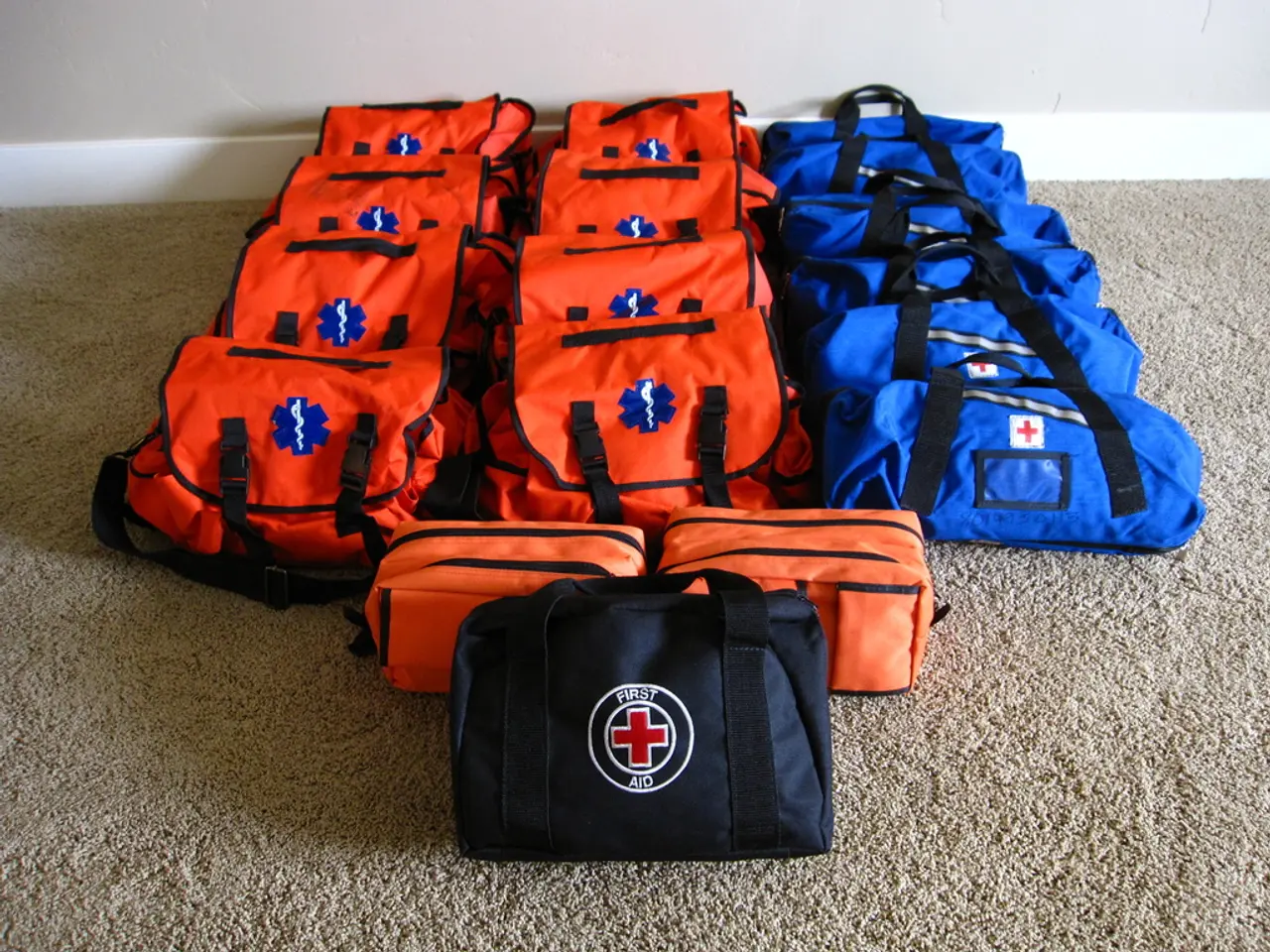Essential First Aid Knowledge Every Nigerian Parent Should Possess
In the event of an emergency, immediate action can make all the difference. This blog post aims to educate Nigerian parents about the essentials of first aid, empowering them to take control and provide initial assistance until professional help arrives.
First aid is defined as the initial assistance given to a person who has been injured or taken ill suddenly. A well-equipped first aid kit is, therefore, essential for Nigerian parents. The kit should include sterile dressings and bandages, antiseptic wipes and solution, adhesive bandages, gauze and tape, scissors, tweezers, and prescription medications, along with personalized medical information and emergency contact details.
Prompt interventions can prevent complications from arising, such as infections or long-term disabilities. Preserving life is the primary goal of first aid. In case of a severe allergic reaction, administering an epinephrine auto-injector and seeking immediate medical assistance is necessary. Common allergens in Nigeria include pollen, dust mites, certain foods, and insect bites/stings. Symptoms of an allergic reaction include hives, itching, swelling, difficulty breathing, and dizziness.
Fever and febrile seizures involve measuring the body temperature and providing comfort measures, while staying calm and ensuring the child's safety during a seizure.
The basic principles of first aid, commonly known as the ABCDs, play a vital role in providing effective help. These principles focus on Airway, Breathing, Circulation, and Disability. Essential basic first aid techniques Nigerian parents should learn include how to manage common emergencies such as cuts, burns, choking, fractures, bleeding, and unconsciousness, along with knowing how to perform CPR (cardiopulmonary resuscitation) and pediatric first aid.
Key first aid techniques to focus on are:
- Assessing the situation safely before providing aid.
- Stopping bleeding by applying direct pressure.
- Treating burns with cool water to reduce damage.
- Managing choking emergencies using back blows and abdominal thrusts.
- Immobilizing fractures to prevent further injury.
- Administering CPR, especially for children and infants, to maintain breathing and circulation until professional help arrives.
- Recognizing signs of unconsciousness and placing a person in the recovery position.
- Calling for emergency assistance promptly when needed.
Training on these practical skills should be interactive and led by certified emergency care professionals for best results. Regularly updating first aid skills is crucial to stay current with the latest protocols and best practices. Formal first aid and CPR training is available in Nigeria, with options for online and in-person courses.
By mastering these basic first aid interventions, Nigerian parents can significantly improve emergency outcomes for their children and families. Regularly checking and restocking the first aid kit is crucial to ensure its effectiveness. Authorities in Nigeria recommend government and community programs to provide such training and resources to parents and caregivers.
In conclusion, learning first aid empowers individuals to take control in emergency situations. By having a well-stocked first aid kit and knowing the essential first aid techniques, Nigerian parents can provide immediate assistance and potentially save lives.
- To ensure the safety of their kids, Nigerian parents should be educated about the essentials of first aid, armed with a well-equipped first aid kit that includes necessary supplies and personalized medical information.
- In the event of a severe allergic reaction, the immediate administration of an epinephrine auto-injector and seeking prompt medical assistance is crucial, as common allergens in Nigeria include pollen, dust mites, certain foods, and insect bites/stings.
- Fever and febrile seizures require measuring the body temperature and offering comfort measures while maintaining the child's safety, staying calm during the seizure.
- To effectively manage emergencies, parents should familiarize themselves with the basic principles of first aid, known as the ABCDs, focusing on Airway, Breathing, Circulation, and Disability.
- Essential first aid techniques for Nigerian parents include managing common emergencies such as cuts, burns, choking, fractures, bleeding, and unconsciousness, along with knowing how to perform CPR (cardiopulmonary resuscitation) and pediatric first aid.
- Training on these practical skills should be interactive and led by certified emergency care professionals, with regular updates essential to stay current with the latest protocols and best practices in health, safety, parenting, and children's health-and-wellness.




